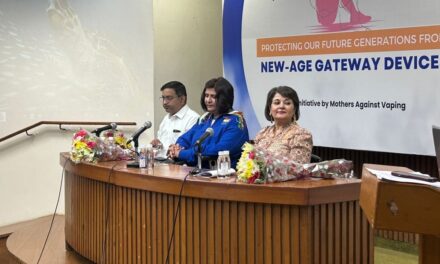The number of scientific research article retractions in 2023 soared past 10,000, setting a new annual record and highlighting the growing challenge of maintaining research integrity. Publishers have long struggled with the influx of papers marred by serious integrity issues. However, a groundbreaking framework aimed at assessing research integrity in clinical guidelines has now been unveiled, promising a more robust approach to tackle this issue.
Developed by Monash University researchers in Australia, the Research Integrity in Guidelines and Evidence Synthesis (RIGID) framework offers a structured method to identify and exclude untrustworthy research. This framework was published in eClinicalMedicine and has already been applied successfully to the International Evidence-based Guidelines for Polycystic Ovary Syndrome (PCOS), developed in collaboration with 39 national and international societies and 80 multidisciplinary experts and consumers.
Addressing Critical Concerns in Clinical Trials
Clinical trials that lack integrity or exhibit trustworthiness issues pose significant risks to patient care. They can lead to unnecessary or harmful treatments and waste valuable resources, misguiding future medical research. According to Professor Ben Mol, a co-lead author of the RIGID framework, at least 25% of clinical trials informing clinical guidelines might not be trustworthy.
The RIGID framework was put to the test in 2023, with the PCOS guidelines. Through its rigorous process, it was discovered that no less than 45% of the randomized controlled trials (RCTs) assessed had moderate or high risk of integrity concerns and were excluded from informing clinical practice.
The RIGID Framework in Action
The RIGID framework employs a simple six-step approach to assess research integrity:
- Review: Standard systematic review processes are applied.
- Exclude: Studies that have been retracted are excluded, and those with expressions of concern are flagged for further evaluation.
- Assess: Remaining studies are assessed for integrity using tools like the Research Integrity Assessment (RIA) tool or Trustworthiness of Randomized Controlled Trials (TRACT) checklist and given an initial integrity risk rating.
- Discuss: Integrity assessment results are reviewed by committee members who vote to finalize the integrity risk rating for each study.
- Establish Contact: Authors of studies rated as moderate or high risk are contacted for clarification.
- Reassess: Studies are reassessed for inclusion based on the authors’ responses using the RIGID author response algorithm.
Transparency is a key aspect of the RIGID framework. Studies identified as having moderate or high integrity concerns are documented, and authors are given a chance to address these issues within two weeks. If authors do not respond, the questionable research is excluded from the evidence synthesis.
Overcoming Systemic Shortcomings
Despite efforts by entities like the UK-based Committee on Publication Ethics (COPE) to handle publication retractions, existing policies often fall short. Professor Mol highlights that these policies focus on editorial and publishing processes without providing adequate guidance for researchers and guideline developers to handle suspicious evidence.
Retraction practices also rely heavily on whistleblowers and the cooperation of authors, their institutions, and publishers. However, inquiries are frequently met with silence or defensive legal threats, and official conclusions are rarely reached.
Professor Helena Teede, another co-lead author of the RIGID framework, underscores that problematic research persists due to systemic shortcomings, including inadequate research reporting processes, lack of investigation resources, and insufficient incentives for stakeholders to address integrity concerns.
A New Era for Clinical Guidelines
The successful implementation of the RIGID framework in the PCOS guidelines has set a precedent. Approved by the National Health and Medical Research Council of Australia, the PCOS guidelines have been downloaded over 35,000 times and presented at over 100 conferences globally. The framework is now being applied to other international guidelines, such as those for Premature Ovarian Insufficiency (POI) and the Australian adaptation of the European Society of Human Reproduction and Embryology (ESHRE) Unexplained Infertility Guideline.
By weeding out untrustworthy studies, the RIGID framework ensures that only reliable evidence informs clinical practice, significantly enhancing the quality and trustworthiness of clinical guidelines.
For more information, refer to the study: Research Integrity in Guidelines and eviDence synthesis (RIGID): a framework for assessing research integrity in guideline development and evidence synthesis, published in eClinicalMedicine (2024). DOI: 10.1016/j.eclinm.2024.102717.












